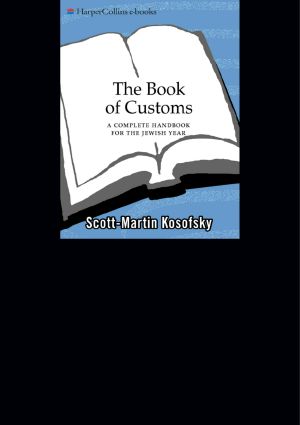The Book of Customs

- Authors
- Kosofsky, Scott-Martin
- Publisher
- HarperCollins e-books
- Tags
- religion , reference , history
- ISBN
- 9780061739545
- Date
- 2004-10-01T00:00:00+00:00
- Size
- 0.93 MB
- Lang
- en
Fifteen years ago while researching Jewish imagery, award-winning book designer Scott-Martin Kosofsky happened upon a 1645 edition of the Minhogimbukh -- the "Customs Book" -- a beautifully designed and illustrated guide to the Jewish year written in Yiddish, the people's vernacular. Captivated, he investigated further and learned that from 1590 to 1890, this cross between a prayer book and a farmer's almanac was immensely popular in households all across Europe. Published in dozens of editions and revised over the centuries in Venice, Prague, Amsterdam, and throughout Germany before moving eastward in the nineteenth century to Poland and Russia, these books detail the evolution of Jewish custom over three hundred years. But by the 1890s, as Jewish practice became polarized between the secularist and traditionalist views, the Minhogimbukh disappeared.
There are no works quite like the historical customs books available today and none so thorough and concise, intuitive in organization, and beautiful. Inspired by the originals, Kosofsky set out to make his own, adapting the books for modern use, adding historical perspective and contemporary application. The result is the reappearance of the Minhogimbukh after more than a hundred-year absence, and the first complete showing of all the original woodcuts -- a visual vocabulary of Jewish life -- since the 1760s. Faithfully based on the earlier editions, The Book of Customs is an updated guide to the rituals, liturgies, and texts of the entire Jewish year -- from the days of the week and the Sabbath to all the months with their festivals, as well as the major life-cycle events of wedding, birth, bar and bat mitzvah, and death. With the revival of this lost cultural legacy, The Book of Customs can once again become every family's guide to Jewish tradition and practice.